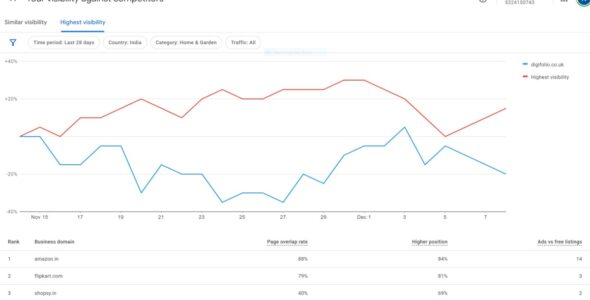The Role of Business Intelligence in Real Estate Marketing
In the ever-evolving real estate industry, data-driven strategies are essential for success. Business Intelligence (BI) has become a crucial component of real estate marketing, enabling professionals to gain valuable insights and make informed decisions. This article explores the vital role of Business Intelligence in real estate marketing and its impact on driving effective campaigns and maximizing returns.

Understanding Business Intelligence in Real Estate:
Business Intelligence encompasses the technologies, processes, and strategies that facilitate the collection, analysis, and visualization of data to support decision-making. In the context of real estate marketing, BI involves leveraging data to understand market trends, customer behavior, and competitive landscapes.
Benefits of Business Intelligence in Real Estate Marketing:
1. Targeted Marketing Efforts: BI allows real estate marketers to segment their audience and create targeted marketing campaigns. By understanding customer preferences and behaviors, marketers can deliver personalized messages that resonate with potential buyers and tenants.
2. Data-Driven Pricing Strategies: BI enables real estate professionals to analyze market data and set competitive pricing for properties. Understanding market trends and property values helps in optimizing pricing strategies to attract buyers and drive sales.
3. Competitor Analysis: BI tools provide insights into competitors’ activities, such as pricing, marketing strategies, and property features. This knowledge empowers real estate professionals to position their properties effectively in the market and differentiate themselves from competitors.
Data Integration and Management:
To harness the power of BI, real estate professionals must integrate and centralize data from various sources, such as CRM systems, MLS databases, website analytics, and social media platforms. Efficient data management ensures that accurate and up-to-date information is available for analysis.
Data Visualization:
BI platforms offer data visualization capabilities that present complex information in a clear and digestible format. Interactive dashboards and visual reports help real estate marketers grasp key insights quickly and make data-driven decisions effectively.

Predictive Analytics:
BI tools often incorporate predictive analytics to forecast market trends, customer behavior, and demand patterns. These insights enable real estate professionals to proactively respond to market changes and capitalize on emerging opportunities.
Challenges and Considerations:
Implementing BI in real estate marketing requires overcoming challenges such as data integration complexities, ensuring data accuracy, and addressing data privacy and security concerns. Additionally, acquiring the right BI tools and providing adequate training to users are crucial for maximizing its benefits.
Conclusion:
Business Intelligence has become an indispensable tool in real estate marketing, providing valuable insights that drive strategic decision-making. By leveraging data to understand market trends, customer preferences, and competitor activities, real estate professionals can design targeted marketing campaigns, optimize pricing strategies, and position their properties effectively in a competitive market.
As the real estate industry continues to evolve, BI will play an increasingly vital role in shaping marketing strategies and driving successful outcomes for real estate professionals. Embracing data-driven practices and adopting BI solutions will be instrumental in gaining a competitive edge and achieving long-term success in the dynamic and ever-changing real estate landscape.






[…] Data-driven strategies are essential for success. Business Intelligence (BI) has become a crucial component of real estate marketing, enabling professionals to gain valuable insights and make informed decisions. […]